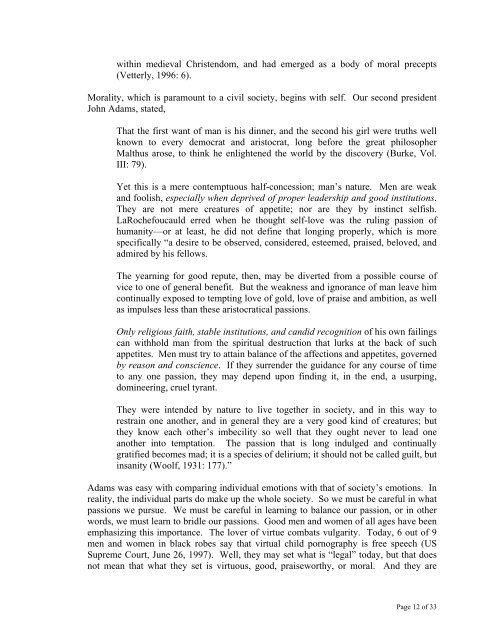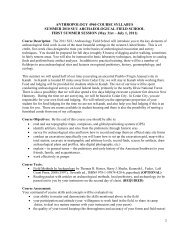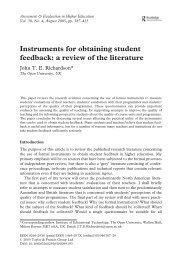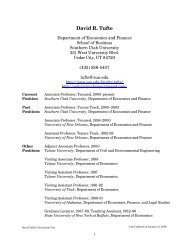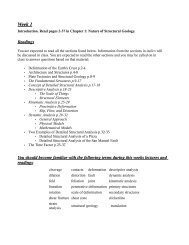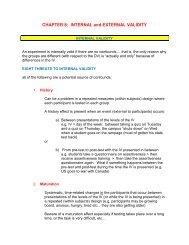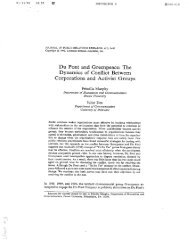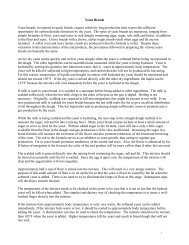Jeffrey Barnes: Self-Evident Truths - Southern Utah University
Jeffrey Barnes: Self-Evident Truths - Southern Utah University
Jeffrey Barnes: Self-Evident Truths - Southern Utah University
You also want an ePaper? Increase the reach of your titles
YUMPU automatically turns print PDFs into web optimized ePapers that Google loves.
within medieval Christendom, and had emerged as a body of moral precepts<br />
(Vetterly, 1996: 6).<br />
Morality, which is paramount to a civil society, begins with self. Our second president<br />
John Adams, stated,<br />
That the first want of man is his dinner, and the second his girl were truths well<br />
known to every democrat and aristocrat, long before the great philosopher<br />
Malthus arose, to think he enlightened the world by the discovery (Burke, Vol.<br />
III: 79).<br />
Yet this is a mere contemptuous half-concession; man’s nature. Men are weak<br />
and foolish, especially when deprived of proper leadership and good institutions.<br />
They are not mere creatures of appetite; nor are they by instinct selfish.<br />
LaRochefoucauld erred when he thought self-love was the ruling passion of<br />
humanity—or at least, he did not define that longing properly, which is more<br />
specifically “a desire to be observed, considered, esteemed, praised, beloved, and<br />
admired by his fellows.<br />
The yearning for good repute, then, may be diverted from a possible course of<br />
vice to one of general benefit. But the weakness and ignorance of man leave him<br />
continually exposed to tempting love of gold, love of praise and ambition, as well<br />
as impulses less than these aristocratical passions.<br />
Only religious faith, stable institutions, and candid recognition of his own failings<br />
can withhold man from the spiritual destruction that lurks at the back of such<br />
appetites. Men must try to attain balance of the affections and appetites, governed<br />
by reason and conscience. If they surrender the guidance for any course of time<br />
to any one passion, they may depend upon finding it, in the end, a usurping,<br />
domineering, cruel tyrant.<br />
They were intended by nature to live together in society, and in this way to<br />
restrain one another, and in general they are a very good kind of creatures; but<br />
they know each other’s imbecility so well that they ought never to lead one<br />
another into temptation. The passion that is long indulged and continually<br />
gratified becomes mad; it is a species of delirium; it should not be called guilt, but<br />
insanity (Woolf, 1931: 177).”<br />
Adams was easy with comparing individual emotions with that of society’s emotions. In<br />
reality, the individual parts do make up the whole society. So we must be careful in what<br />
passions we pursue. We must be careful in learning to balance our passion, or in other<br />
words, we must learn to bridle our passions. Good men and women of all ages have been<br />
emphasizing this importance. The lover of virtue combats vulgarity. Today, 6 out of 9<br />
men and women in black robes say that virtual child pornography is free speech (US<br />
Supreme Court, June 26, 1997). Well, they may set what is “legal” today, but that does<br />
not mean that what they set is virtuous, good, praiseworthy, or moral. And they are<br />
Page 12 of 33


